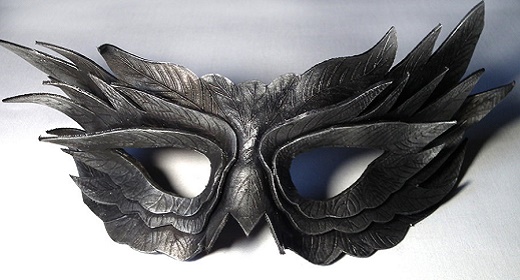by Donna Quesada: Spiritual guides often say that the end of suffering is found when the true self is realized…

What is the true self, anyway, and how does it make life “better?”
Before explaining further, consider this random list of everyday concerns and experiences:
- I can see signs of aging
- I need to lose weight by summer
- I feel so rejected
- Is she going to call?
- I’ll beat him at his own game
- That was MY idea!
- Is he ever going to shut up?
- Will this traffic never let up?
- I will make sure they notice me
- I should be making more money by now
- My colleague just got promoted; I better be next
- When am I going to find the right love match?
- There’s never enough time in the day
- I need a new car
- I bet I appeared nervous
- I looked stupid when I said that
- Daylight savings makes me depressed
- I will prove that I thought of it first
- I’m no good with public speaking
- I always have problems with her
So, how will relating to your true self eliminate these everyday concerns? Firstly, consider the prevalence of judgment, comparison, lack and expectation in the list. Where do judgment, comparison, lack and expectation come from?
There is a Zen koan that says: “Show me your original face before you were born.” A variation is: “Without thinking of good or evil, show me your original face before your mother and father were born.”
Like all koans, this perplexing question reads more like a riddle and is not meant to be answered logically. Rather, it invites us to let go of the analytical mind and melt into a place that resides beyond the realm of thinking altogether.
In this particular koan, we are called to relate to ourselves in a way that is pure, in a way that precedes the experiences that shaped our sense of identity and even our habitual ways of thinking.
By transcending the analytical mind, we also transcend the learned tendency to challenge, argue, or squabble over aspects of the koan that may seem “nonsensical.” In other words, if we were to appear before the Zen master and try to impress him/her by our astute observation that I couldn’t have had a face if I wasn’t born yet, so the koan must be flawed to begin with, our teacher would shoo us out quicker than we could make our exiting bow.
In our contemplation of this well-known koan, we can return to our original face, meaning…who we were before we had anything to prove. Who were we before we adopted ideas about ourselves that were based on other peoples opinions (which became our own), and thus, before the judgments, comparisons, sense of lack and consequent expectations developed?
In the purity of this unshaped Self-ness, there was no sense of lack and nothing to prove.
Every judgment, e.g., I looked stupid when I said that, piggybacks on an insecurity and an implicit comparison to something else (a child has no sense of “looking stupid” because she also has no sense of “looking cool”).
What is it that gives rise to these kinds of insecurities?
The ego, of course. And ego is not your true Self. It is a masquerader shaped from those expectations and opinions mentioned above. Although commonly associated with arrogance, it is much more subtle that that. It is the insecure part of us that needs constant recognition, approval, and reassurance. And because it is born when our sense of separateness is born, it is competitive and comparative. It needs to be right. It needs to be better. And because of the fear generated by its exaggerated sense of self, it is in a constant state of anxiety and distrust.
How many of the issues on our list would vanish if we were engaging with life from a higher place than ego. What is that place? Where is that place?
It is our original and true Self, of course!
Or, put differently, if ego is the head, than our true self is the heart. The ego worries about what the Yogis call “lower-chakra” concerns…getting and having, issues that go back to basic survival needs, and there’s always more to get and others who have more, so competition rules the day.
And the heart—as corny as it sounds—is love. And in love, there simply is no room for self-doubt and insecurity, and all the comparisons and judgments that come along for the ride. And by love, I don’t mean mushy romantic stuff—which is just more ideas that come from images and stories—I mean, rather, total acceptance, trust and knowing.
Knowing what?
That everyone has their own place, purpose and is supported in their mission…and that no one else can fulfill this mission in quite the same way, so there’s no sense in worrying about what others are doing. Just congratulate them and mean it wholeheartedly, because they’re doing what they’re supposed to be doing and you’re doing what you’re supposed to be doing and there’s room for all of us and so, we can all just relax and be happy.
To put it in even riskier terms, we could say that when we live from the heart, we are dwelling in God. And God doesn’t take things personally or get involved in drama. God doesn’t compare, judge, get wrecked by anxiety and unfulfilled expectations and certainly has nothing to prove and no sense of lack.
So, that takes care of the entire list!
And it also takes care of the conditions we place on our own happiness. We can also read that list as a list of conditions that we think need, in order to be content and fulfilled in life.
So, in answer to the koan, our original face is free from the struggles that accompany the ego and of the judgments that come from other people’s opinions and expectations. So, when we strip off the masks we took to wearing as a kind of armor plate, we become free, in turn, to live in a natural and relaxed state, where the only thing lacking is drama.








































